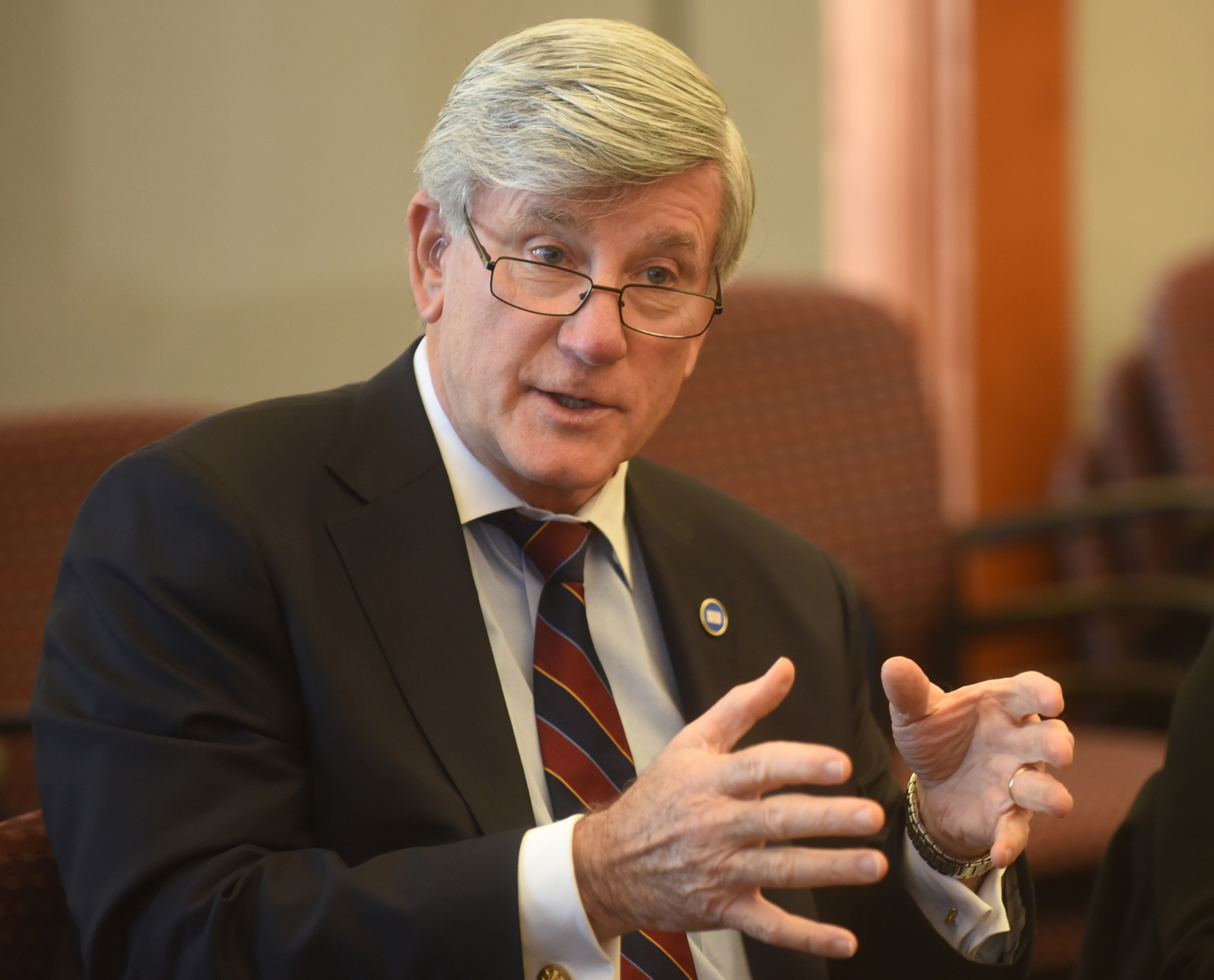NASHVILLE - Proponents of rural broadband services on Wednesday demanded Tennessee lawmakers quit listening to for-profit telephone and cable giants and allow Chattanooga's EPB and other municipal electric power services to expand their lightning-fast Internet offerings to underserved areas.
"We're talking about AT&T," Sen. Todd Gardenhire, R-Chattanooga, bluntly told a rally of business owners, families and local officials gathered in the state Capitol. "They're the most powerful lobbying organization in this state by far."
The bill has been opposed for years by AT&T, Comcast and other providers who say it's unfair for them to have to compete with government entities like EPB. But EPB, as well as some lawmakers like Gardenhire, say if the free market isn't providing the service, someone else should.
"Don't fall for the argument that this is a free market versus government battle," Gardenhire said. "It is not. AT&T is the villain here, and so are the other people and cable."
Lack of service is a major issue in rural areas of Hamilton, Bradley and Marion counties, as well as other rural parts of Tennessee. Supporters on Wednesday described hardships in areas that range from operating a company and economic development recruitment to a 10-year-old child describing how she can't access education-related programs.Earlier this week, House Speaker Beth Harwell, R-Nashville, told National Federation of Independent Business-Tennessee members she doesn't expect the General Assembly will take up the issue this year after Gov. Bill Haslam's economic development officials announced they were initiating a study.
But the bill's House sponsor, Rep. Kevin Brooks, R-Cleveland, said he is "absolutely" pressing forward with the bill. It has been put on notice to be heard in March in House subcommittee.
"There was a misconception that the broadband bill was dead. The bill is not dead," Brooks said.
Outside the state Capitol's first-floor old Supreme Court room was a placard charging AT&T in Tennessee received $156 million from an Obama administration program aimed at expanding access to broadband. At the same time, Gardenhire said, they're opposing governmental entities like EPB expanding.
AT&T spokesman Daniel Hayes said in an email "it is incorrect to equate the common practice of government providing incentives to encourage private-sector behavior with the concept of direct government competition."
He said the Federal Communication Commission's Connect America Fund provides private-sector incentives "specifically designed to encourage deployment to address a clearly defined and limited federal goal.
"Generating significant amounts of public debt to sustain municipal networks is a different animal," Hayes added. "Taxpayer money should not be used to over-build or compete with the private sector, which has a proven history of funding, building, operating and upgrading broadband networks. Policies that discourage private-sector investment put at risk the world-class broadband infrastructure American consumers deserve and enjoy today."
Earlier, Sen. Janice Bowling, R-Tullahoma, the Senate sponsor of the broadband bill, told advocates, "We need broadband and we want it now!"
Bowling, whose district includes Marion County, reminded the audience that the General Assembly passed legislation 16 years ago allowing municipal electric services like EPB and her hometown Tullahoma Utilities Board to offer cable. But the law restricted and continues to restrict the public power utilities to their traditional service area.
Sixteen years later, many rural areas still don't have decent access, said Bowling, who noted, "this is about Tennesseans having access to the 21st century."
EPB attracted national attention five years ago when it began offering 1 gigabit service to its customers. Late last year, EPB announced it was expanding that to speeds of 10 gigabits.
Among speakers at Wednesday's event was Debby Williams, an accountant, and her 10-year-old daughter, Ashlyn Williams.
"Just to check email messages is a big deal," Ashlyn told the crowd. "I would really like to be able to get on different programs like KhanAcademy.com and Abcya.com, because they would help me to get a better education."
But the student said she can't right now because the only speeds she has are "way too slow."
Contact Andy Sher at asher@ timesfreepress.com, 615-255-0550 or follow via Twitter at @AndySher1.

